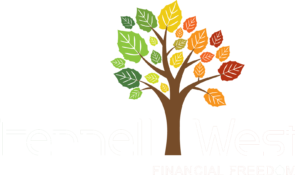CHOOSING THE RIGHT FINANCIAL ADVISER
In our previous article, we covered some of the ways that a financial adviser can help you lift your financial game. But like I’ve never experienced before, the question of how to choose the right financial adviser has been coming up.
This question is usually broken into two parts:
How do I know I can trust them?
How do I know that they’ll suit my needs?
HOW DO I KNOW I CAN TRUST THEM?
The right place to start is pretty obvious – ask around. Talk to friends or family and see who they use. Are they satisfied with the advice and support they’re getting from their financial adviser? Are they happy with the results?
If you can’t find someone who is specifically recommended, look for someone that is visible and connected in the community. This is usually a good indicator that this financial adviser has a lot of reputational skin in the game and is building their business around trust.
Finally, take advantage of technology such as Google and Facebook reviews. These assessments may not be as convincing as a trusted friend or family member, but they are very easy to access and will certainly sharpen your search.

HOW DO I KNOW THAT THEY WILL SUIT MY NEEDS?
A great reference and reputation isn’t enough though.
For example, retired friends or family may have a fantastic financial adviser who is the perfect fit for them. They have the upmost confidence and trust in their financial adviser and can’t recommend them highly enough.
That’s a terrific start and would clearly be someone worth investigating. But that doesn’t necessarily mean that they would be the right fit for a young family.
Their expertise might be weighted towards families who have established savings, own their home and have put their kids through school. However, for someone wanting assistance with everyday finances and debt, they may not have the tools or skillset to be able to assist.
Their approach, experience and communication style might also simply be a great fit for the retired couple but not ideal for a young family. Rapport will be an important element of that ongoing trust and ease of communication.
Put simply, if you’re not completely comfortable with your initial choice then don’t be afraid to shop around.
Generally, there won’t be any costs involved in your initial meetings with an adviser, however, if they are wanting to charge a fee then make sure you know what you are getting for this.
Once you have your meetings set, there are a few things to keep in mind.
Firstly, remember that you’re interviewing them and you have alternatives. Use the meeting to establish that they have the qualifications, experience and offer the right services to meet your needs. Don’t be afraid to ask lots of questions.
Apart from asking questions, pay attention to the conversations. Are they asking you the right questions? Are they listening and understanding what you are trying to achieve? Is the conversation seamless and comfortable or is it hard work?
Finding the right adviser may take some time but it shouldn’t cost you any money. Once you’ve found the right one, they will then prepare a tailored financial plan which is where the costs will be involved.
If you engage a financial adviser, and find the right one, it should be one of the best financial decisions you make. So, it pays to do a little work up front.
Ryan Fennell, Shane West and Jarrod Owen of The Fennell West Unit Trust trading as Fennell West are Authorised Representative(s) of GWM Adviser Services Limited ABN 96 002 071 749, an Australian Financial Services Licensee, Registered office at 105 –153 Miller St North Sydney NSW 2060 and a member of the National Australia group of companies. Licensee No. 230692. Any advice in this article is of a general nature only and has not been tailored to your personal circumstances. Before acting on this advice, you should consider whether it is appropriate having regards to your personal objectives, financial situation and needs.






